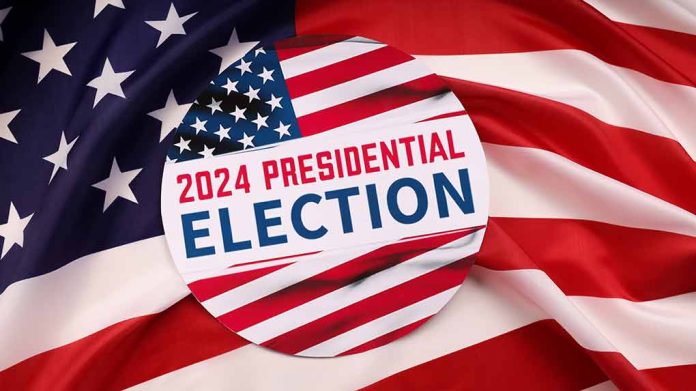
The Supreme Court’s recent decisions are shaping the 2024 election landscape, with Trump and Harris vying for crucial swing state votes amid controversial rulings on ballot access and voter rolls.
At a Glance
- Supreme Court decisions on ballot access and voter rolls are influencing the 2024 election.
- Trump and Harris have contrasting views on climate change, abortion, and Supreme Court reforms.
- The Court’s conservative majority, shaped by Trump’s presidency, could have long-lasting impacts.
- Recent rulings on presidential immunity and election law interpretation bring attention to the Court’s potential influence in future elections.
Supreme Court Decisions Shaping the Electoral Landscape
As the 2024 presidential election approaches, recent Supreme Court decisions are playing a significant role in shaping the political battlefield. The Court’s move to allow Virginia to continue removing voters from its rolls just days before the election has raised concerns about voter access and election integrity.
This decision, along with others related to ballot access and candidate eligibility, is influencing the strategies of both major candidates, Donald Trump and Kamala Harris, as they compete for crucial swing state votes.
Contrasting Approaches to Key Issues
The candidates’ stances on major issues reflect stark differences that voters will need to consider. On climate change, Vice President Harris views it as an “existential threat,” while former President Trump has referred to it as a “hoax.” These contrasting views extend to energy policy, with Trump favoring fossil fuels and Harris supporting incentives for low-emissions energy.
On abortion, Harris advocates for federal legislation guaranteeing access, while Trump believes decisions should be left to the states. The candidates also differ on immigration, with Harris supporting comprehensive reform and pathways to citizenship, and Trump promising large-scale deportations and restrictive policies.
The Supreme Court’s Conservative Majority
The Supreme Court, strengthened by conservative appointments during Trump’s presidency, remains a key defender of constitutional principles. Recent rulings have reinforced the protections granted to presidents, upholding immunity for actions taken while in office and ensuring a balance of power.
“President Trump has said that, apart from matters of war and peace, the nomination of a Supreme Court justice is the most important decision an American President can make. As president, he appointed constitutionalist judges who interpret the law as written, and he will do so again when voters send him back to the White House,” says Brian Hughes, Trump campaign Senior Advisor.
Implications for the Future
The 2024 election holds significant implications for the future of the Supreme Court and its role in upholding American values. A second Trump term would help secure a conservative majority on the Court for generations, reinforcing a commitment to constitutional integrity. Harris, however, advocates for substantial changes to the Court, including implementing term limits for justices and adding a stricter ethics code.
As the election nears, voters should consider not only where each candidate stands on critical issues but also how their Supreme Court nominations and judicial philosophies could shape the future of American values, constitutional freedoms, and the rule of law for generations to come.














